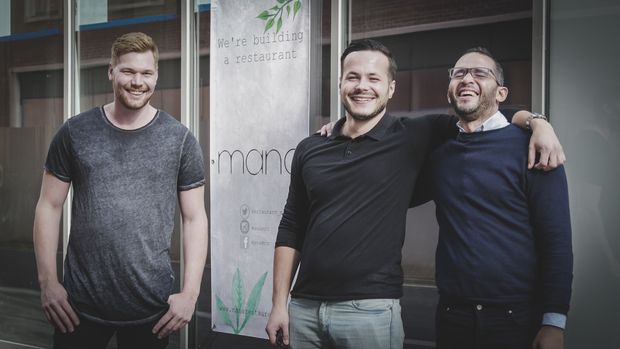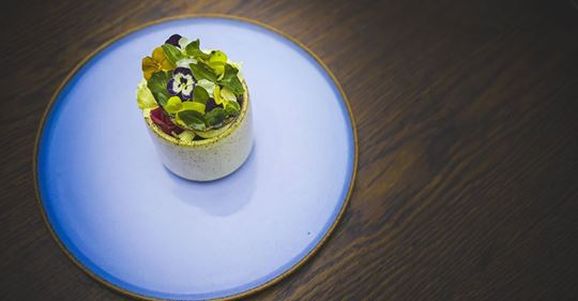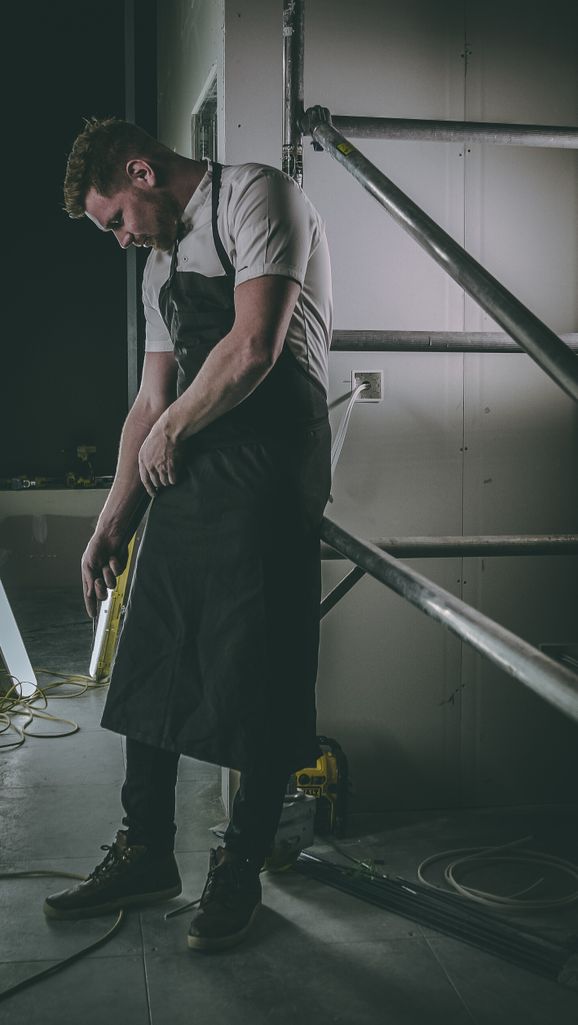IT’S the autumn when Ancoats really clinches the real deal as a foodie destination. First up is ‘Modern Portuguese’ Canto, which opens to the public on September 20. Flash forward a month (October 17) and it’s the turn of Mana further up Blossom Street in Sawmill Court.
This vehicle for ex-Noma chef Simon Martin has set out an ambitious stall. He tells us: "The point of Mana is to rediscover everything that’s been forgotten about Britain’s indigenous produce and ingredients, and to then move forwards with that knowledge; we’re not following a recipe, we’re creating one.”
Simon (above left) together with director of administration Will Cottis and operations director Anthony Barnes (ex-Squid Ink) are pulling this vision together.
So, Simon, why Ancoats for this groundbreaking project?
“It’s almost felt like fate has drawn us here. We needed to take over an entirely empty unit, so that we could make the space our own – not just for identity reasons, but for layout reasons, too. Because what we’re doing isn’t ‘normal’.
“Mana wouldn’t work within a standard restaurant layout. That’s partly because of the bespoke kitchen and research-and-development facilities we’re putting in, but also the fact we’re doing a 16-course menu. Lots of places do something similar, but not at the speed we’re doing: 16 courses in one hour 45 minutes.
“And when we saw this space we just said yeah, straight away. We didn’t even ask how much the rent was. We really went balls-deep. I signed two contracts – one for the fit-out and one for the kitchen – before we had a penny in the bank.”
Mana’s kitchen is costing £300,000. Why so expensive?
“The average restaurant the size of Mana, you could get a kitchen sorted for £50,000. What’s costing us so much is that it’s completely bespoke, and we also wanted it to have an almost ‘domestic’ feel. All the surfaces are a compressed stone called Dekton, for example, which is £590 a square metre.
“We want it to look good not just for the guests – because Mana is open-plan – but also for the chefs. We don’t want them working in the usual stainless-steel cage, some windowless metal basement that’s all dented and broken and scratched. It can feel like you’re working in a prison.
“It’s now well-known that drug and alcohol addictions are widespread within the catering industry, and that’s down to the environments and conditions people are working in, along with the long, long hours. We’re trying to get away from that by creating a comfortable environment.
“And in terms of equipment, we just went for the very, very best of everything. We could’ve bought a £500 fridge, for example, but we went with a £1,200 fridge because it’s better for the environment, more sustainable. At the rear of the kitchen we’ve got the longest Eco-Chef cooking range, too."
You’ve said that Mana isn’t going to about austere ‘fine dining’
“Restaurants are supposed to be fun, it’s a leisurely activity. All the formality behind dining stems very old traditions which in my opinion we’ve outgrown and are better off without. If you’re the type of person who likes to call his waiter Garson and expect there to be a chandelier over your head then you’ll most likely find us too casual for you.
“We’re not making gels and foams and things that aren’t even recognisable. We’re making food. Real food! I hate the term ‘fine dining’, it's extremely vague and is always surrounded by an aura of pretentiousness. I also dislike the term ‘tasting menu’, but unfortunately we’ve not come up with a suitable replacement for it yet…”
Former billets of yours, Simon Radley at The Chester Grosvenor and Noma in Copenhagen hold Michelin stars. Are you aiming for one here, Simon?
“It’ll be nice if it happens. When I was coming up through kitchens, a Michelin star was the most important thing. The most. And a Michelin star can be great – it’s certainly great for business – but it can also be so destructive. It’s destructive if you’re striving to get one, and destructive if you’re worried about losing it. It’s definitely not something thats going to be on our minds every day, if at all
“A successful restaurant for me is one that’s full every night and where our guests are happy, not one with a little red star next to their name in a book.”
For this experience at 42 Blossom Street customers will be paying £95 for the menu; £35 for a juice pairing, £40 for a beer pairing, £50 for a wine pairing, £65 for an alcohol pairing, £85 for a vintage wine pairing. Bookings are now being taken here.



